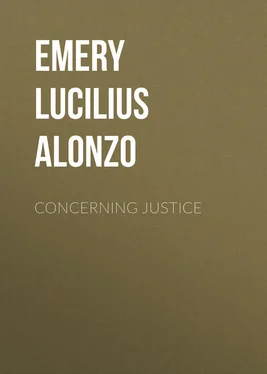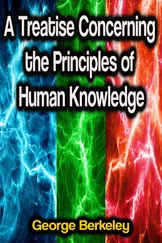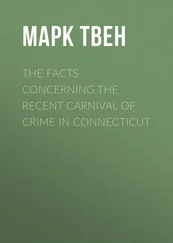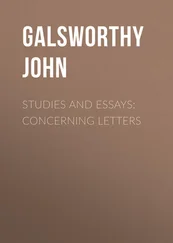Lucilius Emery - Concerning Justice
Здесь есть возможность читать онлайн «Lucilius Emery - Concerning Justice» — ознакомительный отрывок электронной книги совершенно бесплатно, а после прочтения отрывка купить полную версию. В некоторых случаях можно слушать аудио, скачать через торрент в формате fb2 и присутствует краткое содержание. Жанр: foreign_antique, foreign_prose, на английском языке. Описание произведения, (предисловие) а так же отзывы посетителей доступны на портале библиотеки ЛибКат.
- Название:Concerning Justice
- Автор:
- Жанр:
- Год:неизвестен
- ISBN:нет данных
- Рейтинг книги:3 / 5. Голосов: 1
-
Избранное:Добавить в избранное
- Отзывы:
-
Ваша оценка:
- 60
- 1
- 2
- 3
- 4
- 5
Concerning Justice: краткое содержание, описание и аннотация
Предлагаем к чтению аннотацию, описание, краткое содержание или предисловие (зависит от того, что написал сам автор книги «Concerning Justice»). Если вы не нашли необходимую информацию о книге — напишите в комментариях, мы постараемся отыскать её.
Concerning Justice — читать онлайн ознакомительный отрывок
Ниже представлен текст книги, разбитый по страницам. Система сохранения места последней прочитанной страницы, позволяет с удобством читать онлайн бесплатно книгу «Concerning Justice», без необходимости каждый раз заново искать на чём Вы остановились. Поставьте закладку, и сможете в любой момент перейти на страницу, на которой закончили чтение.
Интервал:
Закладка:
Lucilius A. Emery
Concerning Justice
CHAPTER I
THE PROBLEM STATED. THEORIES AS TO THE SOURCE OF JUSTICE. DEFINITIONS OF JUSTICE
For centuries now much has been written and proclaimed concerning justice and today the word seems to be more than ever upon the lips of men, more than ever used, but not always appositely, in arguments for proposed political action. Hence it may not be inappropriate to the time and occasion to venture, not answers to, but some observations upon the questions, what is justice, and how can it be secured. It was declared by the Roman jurist Ulpian, centuries ago, that students of law should also be students of justice.
By way of prelude, however, and in the hope of accentuating the main question and presenting the subject more vividly by comparison and contrast, I would recall to your minds another and even more fundamental question asked twenty centuries ago in a judicial proceeding in distant Judea. It is related that when Jesus, upon his accusation before Pilate, claimed in defense that he had "come into the world to bear witness unto the truth," Pilate inquired of him "What is truth?"; but it is further related that when Pilate "had said this he went out again unto the Jews." Apparently he did not wait for an answer. Perhaps he repented of his question as soon as asked and went out to escape an answer. Men before and since Pilate have sought to avoid hearing the truth.
Indeed, however grave the question, however essential the answer to their well-being, there does not seem to be even now on the part of the multitude an earnest desire for the truth. Their wishes and emotions cloud their vision and they are reluctant to have those clouds brushed aside lest the truth thus revealed be harsh and condemnatory. The truth often causes pain. As said by the Preacher, "He that increaseth knowledge increaseth sorrow." People generally give much the greater welcome and heed to him who tells them that their desires and schemes are righteous and can be realized, than to him who tells them that their desires are selfish or that their schemes are impracticable. It has always been the few who have sought the truth, resolute to find it and declare it, whether pleasant or unpleasant, in accord with the wishes of mankind or otherwise. Such men have sometimes suffered martyrdom in the past, and often incur hostility in the present, even when seeking that truth on which alone justice can securely rest.
Nevertheless, so closely linked are truth and justice in the speech, if not the minds, of men, there should be some consideration of Pilate's question. Whether truth is absolute or only relative has been perhaps the most actively discussed topic in the field of philosophy for the last decade. Into this discussion, however, we need not enter, for such discussion is really over the problem of determining the proper criterion of truth. Wherever be this criterion, whether in some quality of inherent rationality or in some utilitarian test of practicability, the truth itself has some attributes so far unquestioned and of which we may feel certain as being inherent, necessary, and self-evident.
Truth is uncompromising. It is unadaptable; all else must be adapted to it. It is not a matter of convention among men, is not established even by their unanimous assent, and it does not change with changes of opinion. It is identical throughout time and space. If it be true now that since creation the earth has swung in an orbit round the sun, it was true before the birth of Copernicus and Galileo. If it be true now that the sum of the three angles of a triangle is equal to the sum of two right angles, it was always true and always will be true, true at the poles and at the equator, true among all peoples and in all countries, true alike in monarchies, oligarchies, and democracies.
Truth is also single. There are no different kinds of truth, though there may be innumerable kinds of propositions of which truth may or may not be predicated. Whichever criterion the philosophers may finally agree upon, it will hold in all propositions alike. The truth of a proposition in mathematics is the same as the truth of a proposition in any other science, physical, social, political, or theological. It can be no more nor less true in each and all. Again, in every science, social and political as well as others, and as to every proposition in any science, the truth is to be discovered, not assumed by mere convention; and men must discover it and discover it fully at their peril. Failure even after the utmost effort will not be forgiven. If the truth be found it will be a sure guide in life. If it be not found the lives of men will so far go awry. That it may be difficult to find, that we may never be sure we have found it, makes no difference.
Are there any attributes of justice of which we can speak so confidently as being necessary, inherent, and self-evident? That justice ranks next to truth, if not with it, seems to have been, and to be, the general judgment of mankind. It has engaged the thought and fired the imagination of the greatest minds. A few quotations from such, ranging from ancient to modern times, will illustrate this. The Hebrew Psalmist gloried that "justice and judgment" were the habitation of Jehovah's throne. Aristotle wrote, "political science is the most excellent of all the arts and sciences, and the end sought for in political science is the greatest good for man, which is justice, for justice is the interest of all." Early in the 12th century the jurist Irnerius, distinguished for his learning and for his zeal in promoting the revival of the study of law and jurisprudence, and also as the reputed founder of the famous Law School at Bologna, imaged justice as "clothed with dignity ineffable, shining with reason and equity, and supported by Religion, Loyalty, Charity, Retribution, Reverence, and Truth."
Six centuries later Addison, famed as a clear thinker and writer, thus wrote of justice: "There is no virtue so truly great and godlike as justice… Omniscience and omnipotence are requisites for the full exercise of it." Almost in our own time Daniel Webster, called in his day the great expounder and even now reckoned among the greatest of men intellectually, in his eulogy upon Justice Story thus apostrophized justice: "Justice is the great interest of man on earth. It is the ligament which holds civilized beings and civilized nations together. Wherever her temple stands and so long as it is duly honored, there is a foundation for social security, general happiness, and the improvement and progress of our race." Perhaps, however, none of these laudations is so vividly impressive as is the pithy remark of an old English judge that "injustice cuts to the bone."
But what is this justice, declared to be so great a virtue, so ineffable, so supremely important? I have said we feel certain of some attributes of truth. Do we know or can we know anything certain about justice? Is it something above and apart from the will of men, or is it simply a matter of convention among men? Is it immutable, or does its nature change with changing times and conditions? If mutable, does it change of itself or do men change it? Is it universal or local, the same everywhere or is it different in different localities? Is it the same for all men and races of men or does it differ according to classes and races? Again, is it single or diverse in its nature? Is there more than one kind of justice? We hear of natural justice, social justice, industrial justice, political justice. What do they who use those terms mean by them? Do nature, society, industry, politics, each have a different criterion? Still again, and briefly, is justice an inexorable law like the law of gravitation or can its operation have exceptions? Is it simply a quality of action or conduct, or, as stated by Ulpian, is it a disposition or state of mind? Finally, is it a reality or, as Falstaff said of honor, is it after all "a word," "a mere scutcheon?"
Читать дальшеИнтервал:
Закладка:
Похожие книги на «Concerning Justice»
Представляем Вашему вниманию похожие книги на «Concerning Justice» списком для выбора. Мы отобрали схожую по названию и смыслу литературу в надежде предоставить читателям больше вариантов отыскать новые, интересные, ещё непрочитанные произведения.
Обсуждение, отзывы о книге «Concerning Justice» и просто собственные мнения читателей. Оставьте ваши комментарии, напишите, что Вы думаете о произведении, его смысле или главных героях. Укажите что конкретно понравилось, а что нет, и почему Вы так считаете.












